|
Isobel Olives has just won Gold at the International Japan Olive Awards held in Tokyo for our 2023 Robust Extra Virigin Olive Oil. 28 Nations entered 766 samples so this has put Isobel Olives on the International map alongside some of the bigger growers from Italy, Spain and Tunisia.
The Judges notes were: Cinnamon and spearmint aroma with sweet strawberry and apple notes. Peach like rich sweet taste in full of the mouth, simultaneously pungency extended to the finish. Very unique taste, impressive. Points awarded: 27 for Aroma, 38 for Gustatory, 16 for Complexity/Persistence. - a total of 81. So if you're wanting to try this fabulous oil. - you better get in quick as stock is limited! You can order here 2024 harvest is about to start but the weather gods are not playing this year, so it may be a smaller harvest than previous years.
0 Comments
According to a new study, using Extra Virgin Olive Oil instead of margarine, butter or other saturated fats may protect you from dying from cancer, cardiovascular and respiratory disease. This is from a combination of decreasing the amount of saturated fat, and increasing the monosaturated fat found in olive oil. The takeaway from this research is to use olive oil every time you can as a substitute for saturated fats when cooking, in salad dressings, or even on your toast.
The study analysed the diets of people enrolled in two large government funded studies, and then compared the findings to disease and death records for those people over time. Those who replaced just over 2 teaspoons of margarine, butter, mayonnaise or dairy fat with the same amount of olive oil had up to a 34% lower overall risk of dying than people that ate little to no olive oil. This is the first long-term study including more than 90,000 participants followed for up to 30 years, conducted in the American population on olive oil and mortality. Previous studies were conducted in the Mediterranean and European populations where consumption of olive oil tends to be higher. The results provide further support for recommendations to replace saturated fat and animal fat with unsaturated plant oils such as olive oil for prevention of premature death. People who reported eating the highest levels of olive oil had 19% lower risk of dying from heart conditions, a 17% lower risk of dying of cancer, a 29% lower risk of dying for neurodegenerative disease and an 18% lower risk of dying from respiratory disease mortality compared with those who never or rarely consumed olive oil in place of saturated fats. The study was published in the Journal of American College of Cardiology. The connection between olive oil and fewer deaths from brain disease was ‘novel’ considering the lack of preventive strategies for alzheimers disease and the high morbidity and mortality related to this disease. This finding, if confirmed is of great public health importance. Olive oil is a key staple in the award-winning Mediterranean diet which studies have shown can reduce the risk for diabetes, high cholesterol, dementia, memory loss, depression and breast cancer. The diet which is ore an eating style than a restricted diet has also been linked to stronger bones, a healthier heart and longer life. While the Mediterranean way of eating is based on traditional foods from 21 countries that surround the Mediterranean sea, it revolves around a fundamental theme. The focus is on simple plant based cooking, featuring fresh vegetables and fruits, whole grains, beans, seeds and nuts and a heavy emphasis on extra virgin olive oil. Food is not the only focus of the Mediterranean approach which recently topped the 2022 rankings for best diet for the 5th year in a row. It’s actually a lifestyle which also emphasizes movement – walking, biking, gardening as well as mindful eating and the social benefit of dining with friends and family. An emphasis on healthy behaviours was also found among the men and women who ate the most olive oil in the study. They were more likely to be physically active or eat more fruits and vegetables than those who ate less olive oil. They were also less likely to smoke. Of note, no scientific evidence supports the notion that eating more olive oil is associated with weight gain. Olive oil could probably increase satiety and fullness, which may potentially reduce the consumption of unhealthy snacks. For more information : https://www.jacc.org/doi/abs/10.1016/j.jacc.2020.02.036 There are many chemical compounds that make up the flavour of Extra Virgin Olive Oil. In some spices, cinnamon for example, there is just a single compound – cinnamaldehyde which imparts a strong smell of cinnamon. It would be nice to be able to identify a single chemical which would tell us whether it is a great olive oil, or not, by a single test. However because of the complexity, we will always need tasters. The interaction of these chemicals together, contribute to its flavour.
Naturally occurring aroma compounds; Aldehydes, alcohols, esters, hydrocarbons, ketones, furans, as well as others, have been identified by gas chromatography and mass spectrometry in good-quality olive oil. Over one hundred such compounds have been identified which, as a whole, contribute to the characteristics which make extra virgin olive oil unique. These tastes and fragrances derive from compounds like hexanal (green, grassy), trans-2-hexenal (green, bitter), and 1-hexanol and 3-methylbutan-1-ol, which are the major volatile compounds of olive oil. Many of these flavour compounds decompose if temperatures during milling are too high. Oleocanthal and oleuropein may cause a bitter or peppery taste, tingling or burning sensation or may cause slight numbness. Some people promote the idea that more pungency is better and consumers have been told that they should ONLY seek out very bitter, peppery oils or else they are being "duped." This is completely untrue. Phenolic compounds also have a significant effect on olive oil flavour. There is a good correlation between aroma and flavour of olive oil and its polyphenol content. Hydroxytyrosol, tyrosol, caffeic acid, coumaric acid, and p-hydroxybenzoic acid influence mostly the sensory characteristics of olive oil. Various off-flavor or rancidity compounds are formed by oxidation, which may be initiated in the olive fruit. Pentanal, hexanal, octanal, and nonanal are the major compounds formed in oxidized olive oil, but 2-pentenal and 2-heptenal are mainly responsible for rancidity. Oleic acid is often thought to be the peppery taste in olive oil. It is not. Different olive oils with the same amount of oleic acid may be quite peppery or not all. Many studies have been done to try to predict a flavour profile based on the oil's chemistry. In "The Handbook of Olive Oil" by Harwood and Arapicio, they cite studies done by the authors that show that aglycons are responsible for the bitter and pungent sensory attribute, as well as tyrosol and possibly alpha-tocopherol. The phenols are related to astringent attributes. It is probably the combination of bitterness and astringency that causes a person to cough. Many factors influence the presence of these compounds, in particular:
When tasting olive oil, much of the oil’s characteristics are perceived through the sense of smell. Though most people enjoy olive oil with other foods, the following steps allow us to focus on the olive oil’s flavour without distraction:
Some desirable traits you may smell/taste in an olive oil are: Apple/Green apple which would be indicative of certain varieties of olives. Bitter which is considered a positive attribute because it means the oil is fresh. Buttery, fruity, grassy, peppery and tropical are all attributes that are seen as positive in a tasting. Some undesirable traits when tasting are: Blue cheese – an aroma associated with muddy sediment effect, Dreggish – an odour of warm lubricating oil caused by poor execution of the decanting process, Fusty which is an anaerobic fermentation that occurs when olives are stored in piles too long before being pressed and Rancid – when an oil has oxidated as it ages and is often described as stale nuts. Dr Chris Piper was featured in the Sun today for his award winning Extra Virgin Olive Oil. His Medium 2021 received a Gold Medal at the Olives New Zealand Awards on Saturday Night. He also received a Silver Medal for his 2021 Koroneiki. Congratulations.
You can purchase the oils from the website, or head to the Marlborough Farmers Market on Sunday Mornings between 9am and 12pm for a tasting. Gold Medal Medium 2021 Silver Medal Koroneiki 2021 The article below... The olive was native to Asia Minor and spread from Iran, Syria and Palestine to the rest of the Mediterranean basin 6,000 years ago. It is among the oldest known cultivated trees in the world - being grown before the written language was invented. It was being grown on Crete by 3,000 BC and may have been the source of the wealth of the Minoan kingdom. The Phoenicians spread the olive to the Mediterranean shores of Africa and Southern Europe. Olives have been found in Egyptian tombs from 2,000 years BC. The olive culture was spread to the early Greeks then Romans. As the Romans extended their domain they brought the olive with them. 1,400 years ago the Prophet of Islam, Muhammad, advised his followers to apply olive oil to their bodies, and himself used oil on his head. The use of oil is found in many religions and cultures. It has been used during special ceremonies as well as a general health measure. During baptism in the Christian church, holy oil, which is often olive oil, may be used for anointment. At the Christmas mass, olive oil blessed by the bishop, "chrism", is used in the ceremony. Like the grape, the Christian missionaries brought the olive tree with them to California for food but also for ceremonial use. Olive oil was used to anoint the early kings of the Greeks and Jews. The Greeks anointed winning athletes. Olive oil has also been used to anoint the dead in many cultures. The oldest olive tree (image below) is located on the Greek island of Crete and is one of seven olive trees in the Mediterranean believed to be at least 2,000 to 3,000 years old. Although its exact age cannot be verified, the Olive Tree of Vouves might be the oldest among them, estimated at over 3,000 years old. It still produces olives, and they are highly prized. Olive trees are hardy and drought-, disease- and fire-resistant — part of the reason for their longevity and their widespread use in the region. In the past several hundred years the olive has spread to North and South America, Japan, New Zealand and Australia. Olive trees were brought to New Zealand by the early European settlers from the 1830’s. Serious propagation of olive trees was, however, only initiated in 1986 with the start of imported cuttings from Israel into Blenheim in the South Island. Subsequently other varieties were imported from Australia. Interest in olive trees surged in the 1990’s with more than 200,000 trees planted across the country. A number of groves were subsequently removed (and unfortunately continue to be removed), either in a move to a higher yielding crop (e.g. grapes) or because the varieties planted were not suitable. The current estimate, based on Olives NZ research, is 400,000 trees across New Zealand. The varieties planted in New Zealand originate now from all of the main olive growing regions of the world; Italy, Spain, France, Israel, Greece. However the most planted varieties are the Tuscan varieties of Frantoio and Leccino. There are in excess of 300 productive groves in New Zealand and the grove size generally ranges between 500 and 1,000 trees. Three regions have one super large commercial groves each; Auckland (40,300 trees), Marlborough (5,117 trees) and Nelson (9,000 trees). Hawke’s Bay has two (17,198; 27,541). The majority of olive groves operate their own brand and most of these direct sell their product(s) to the consumer (via markets, gate sales, etc.), to restaurants and via specialty stores. Probably a dozen have penetrated the supermarket sector where they compete with imported products. Isobel Olives GroveGood quality olive oil has a peppery bite, a mildly bitter aftertaste and can make salad sing when married to balsamic vinegar. The unique taste of olive oil is due to the presence of polyphenols.
Polyphenols are naturally occurring compounds found in plant based foods, including tea, cocoa, vegetables, fruits, and olive oil. Some polyphenols work as antioxidants, which means they neutralize harmful free radicals that potentially damage the body's cells, leading to conditions like heart disease, cancer, and cognitive decline. Studies show that polyphenols help fight inflammation and may help lower the risk of several diseases such as heart disease, some types of cancer, and Alzheimers. Olive oil contains at least 30 different pheolic compounds including oleacein, tyrosol and hydroxytyrosol. By definition, high phenolic olive oil contains at least 250 mg polyphenols per kilogram of oil. So, not all olive oils are high in polyphenols -- it depends how the oils are processed and stored. In Europe, bottles of high-polyphenol olive oil can bear the health claim "olive oil polyphenols contribute to the protection of blood lipids from oxidative stress" as long as it contains at least 5 mg of hydroxytyrosol and its derivatives per 20 g of olive oil. There is no similar health claim in NZ, but of course the health benefits would be the same. One well-known benefit of olive oil is its high proportion of monounsaturated fat, which has been linked to a reduced risk of heart disease and stroke. Olive oil is about 98 percent fat, but that remaining two percent is made up of polyphenols and other minor constituents that lend to olive oil's health benefits. Many studies have looked at the health benefits of good-quality, high-polyphenol olive oil in conjunction with the Mediterranean diet. That's an eating plan that includes lots of vegetables and fruit, cuts back on meat and sweets, and relies on olive oil as the main source of dietary fat. Studies show that regularly using extra virgin olive oil as part of the Mediterranean diet is associated with a reduced risk of developing several diseases -- including heart disease, type 2 diabetes, and some types of cancer. A recent review of 26 studies comparing the beneficial effects of low- vs. high-polyphenol olive oil found that the high-polyphenol oil was superior for protecting heart health, blood pressure and inflammation. But here's the thing -- not all olive oils are high in polyphenols. Some bottles will we labelled with phenolic content, but that's a rare find outside Europe or specialty olive oil shops. If the bottle is labelled, look for one with a phenolic content of 250 mg/kg or more. Like fine wine, high-polyphenol olive oil is expensive -- starting at about $30 per 500 mL bottle. So, that $10 bottle of grocery store olive oil is not going to be high in polyphenols. If you cannot find olive oil that's labelled with phenolic content, here are some tips for sourcing high-polyphenol olive oil from reputable dealers:
Once home, keep the olive oil bottle away from heat and light. Store it away from the stove top, preferably in a cool, dark spot -- and yes, you can keep olive oil in the fridge. Once the bottle of olive oil is opened, consume it within a few months. And yes, you can cook with Extra Virgin Olive Oil at medium stove-top heat without destroying the polyphenols. Check out Busting the Myth and Video that explains this. Myth Noun a widely held but false belief or idea. We find them everywhere. They spring up out of nowhere and take a life of their own. Mostly the source of where it began is never found. Social media perpetuates them and before long, the majority of people believe it to be true, and it gets harder and harder to cut through to the actual truth. Cue the latest research! There’s a widely held but false belief that Olive Oil is unsafe to cook with, that it breaks down and produces compounds that may be detrimental to health. I hear it from people all the time. IT IS NOT TRUE, and it’s one of those myths that do the rounds all the time. The latest research out has found that Extra Virgin Olive Oil is one of the most stable and safest oils for cooking with. Australian researchers compared the effects of heating extra virgin olive oil (EVOO) and an array of other common cooking oils and found EVOO to be the safest and most stable even when used at high temperatures. The investigation also dispelled several erroneous beliefs associated with cooking oils. You can check out the research yourself here But in a nutshell, it was found that EVOO produced the lowest amount of harmful substances when heated, yet other refined oils such as Canola, Peanut, or Coconut oils produced much more. The study also used much higher temperatures than those used in common cooking. This research provides unequivocal and definitive evidence that should finally dispel this myth. It shows that extra virgin olive oil is not only safe during heating at regular cooking temperatures, but is the desirable cooking oil when compared with others. The production of potentially harmful polar compounds and trans-fats was markedly lower in EVOO. In yet another study: “Compared with seed oils, EVOO is preferable for frying, especially in home cooking (IOC). Under proper temperature conditions, without overheating, it undergoes no substantial changes and its performance is usually equal or superior to refined vegetable oils, due to its balanced composition regarding both major and minor components (Santos and others 2013).” Frying in extra virgin olive oil provides the potential for preventing cardiovascular diseases as indicated by the lowering of atherogenic and thrombogenic indices in fish and vegetables pan‐fried in EVOO. In addition, when EVOO is used for frying, several health promoting microconstituents like phenolics, tocopherols, phytosterols, squalene, and terpenic acids, enrich the fried food and become part of our diet. So – next time you are doing a stir-fry or roast, grab your bottle of Isobel Olives Extra Virgin Olive Oil and apply generously. You’ll be doing your health a very big favour! To purchase your bottle - click here! Below is a short video with the important points of the research. - Exploding the Myth. The Mediterranean diet has recently become very popular with medical researchers. It includes vegetables, and grains and not so much meat, and generous portions of olive oil. The evidence that olive oil is good for your heart has never been more clear. Mary Flynn, an associate professor of medicine at Brown University considers it more medicine than food. A big study published in the New England Journal of Medicine, had men and women in their 50s, 60s and 70s who were at risk of heart disease follow one of three diets. Some ate low-fat, another group ate Mediterranean diet with nuts and a third group ate a Mediterranean diet that included almost four tablespoons of extra-virgin olive oil a day. The researchers found that the Mediterranean diet rich in olive oil cut the risk of heart attacks and strokes by 30 percent. Olive oil is good for two reasons - it’s mostly unsaturated fat, and extra virgin oil which is the highest grade and least processed contains a whole range of other beneficial plant compounds called polyphenols. Many Olive oils imported into NZ and in our supermarket shelves are too old. It’s often been shipped from place to place and sometimes not stored well, which means many of the heart-healthy compounds have degraded and fizzled. So where can you get your hands on the healthy stuff? Look for brands that carry a harvest date on the bottle. Isobel Olives includes the date that the olives were harvested to produce the oil on the label, and the olives were pressed very quickly so the oil is fresh. The most important thing to remember is that EVOO is not wine and it does not get better with age. However, as long as the olive oil is properly stored the freshness will hold in the bottle for two years. As soon as you open the bottle and expose the oil to oxygen and light, it will slowly start to degrade. Oils with the highest level of heart-healthy compounds tend to be pungent and peppery. If the oil stings the back of your throat a little that tells you the beneficial polyphenols are really there. So grab a bottle of Isobel Olives Olive Oil from the Farmers market this week or contact me today, and start protecting your heart.
Wondering about how to buy extra virgin olive oil? We can tell you all about making olive oil, how it was produced locally at the Marlborough olive press and even recipes for cooking!
Just ask for Chris! See you this Sunday. Chris Piper Isobel Olives Fresh Extra Virgin Olive Oil |
AuthorChris Piper Archives
June 2024
Categories |


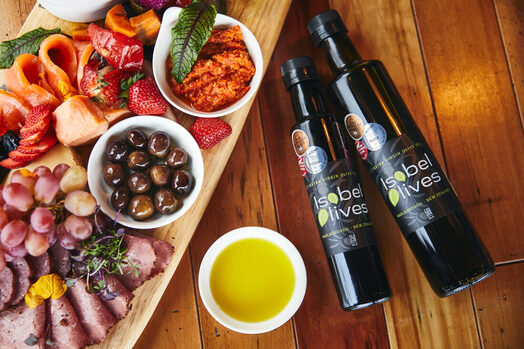
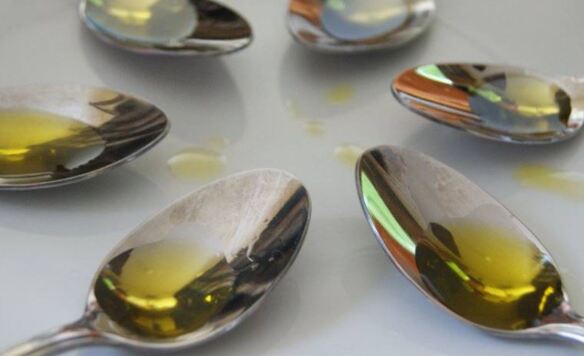
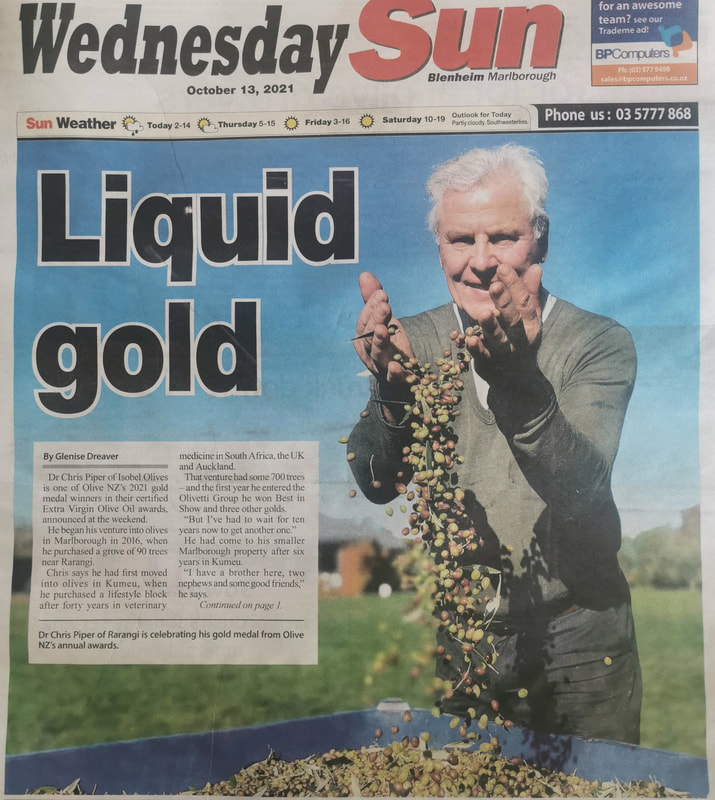
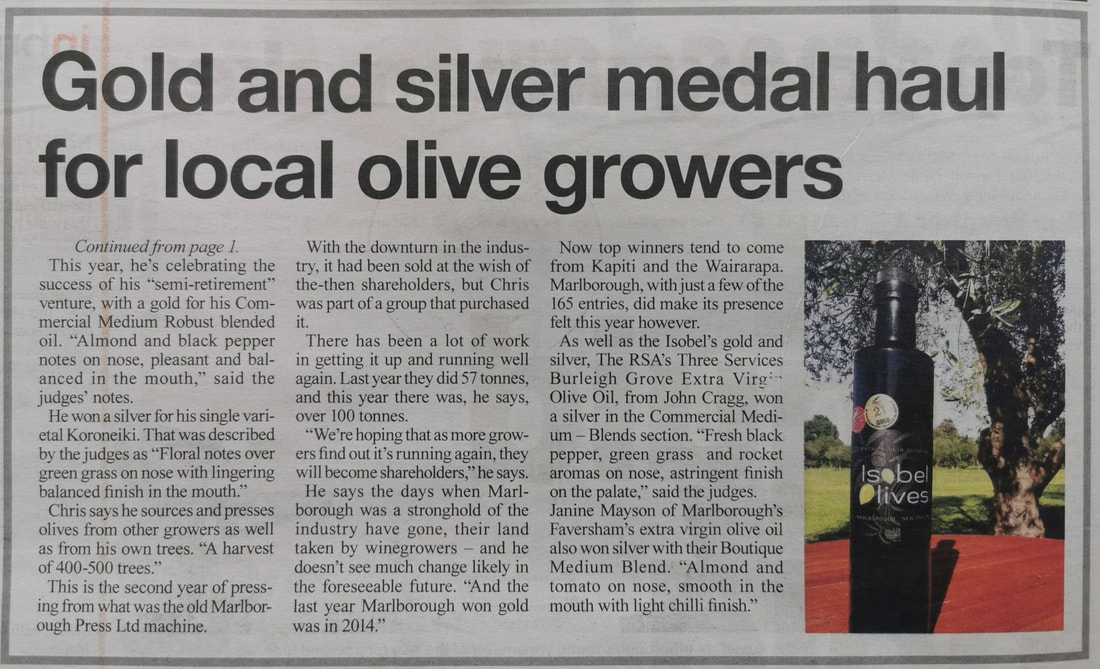
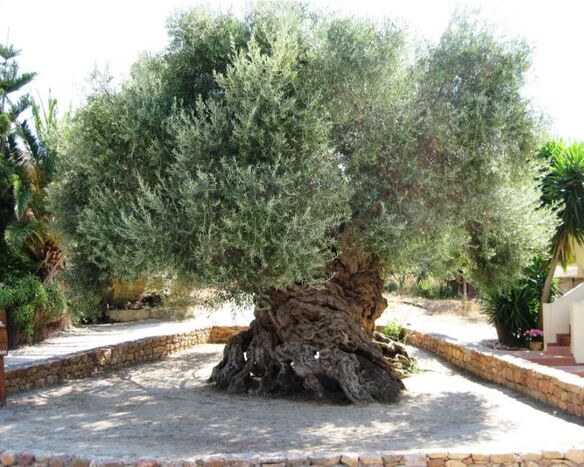
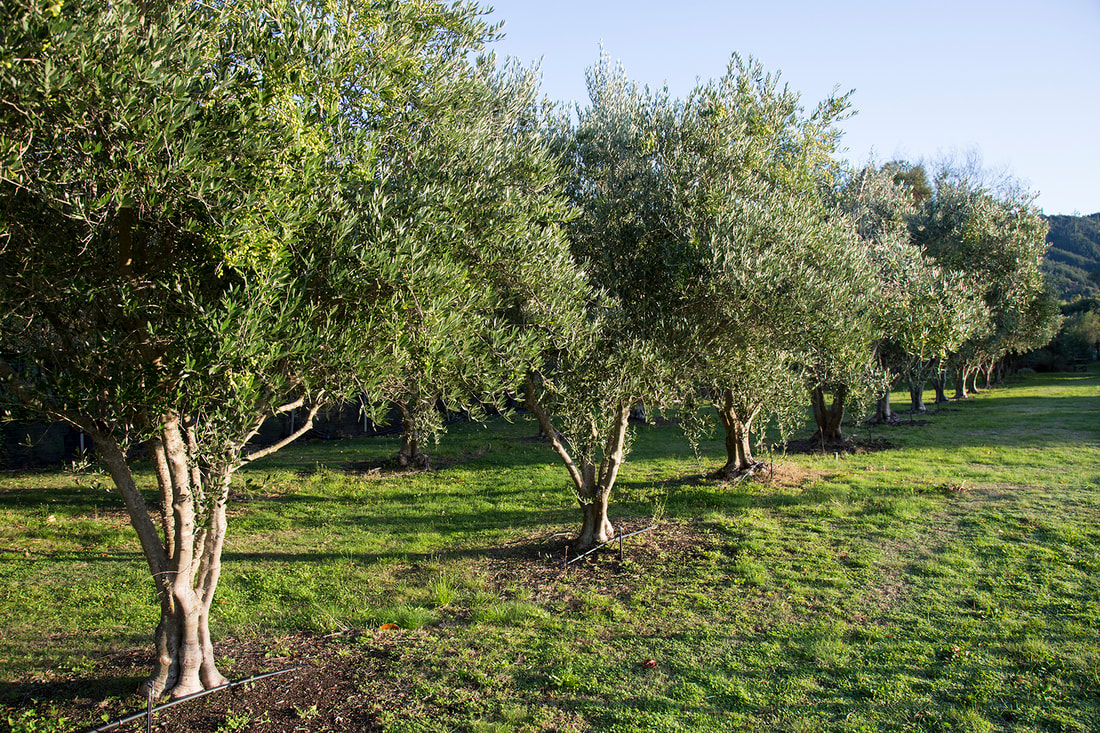
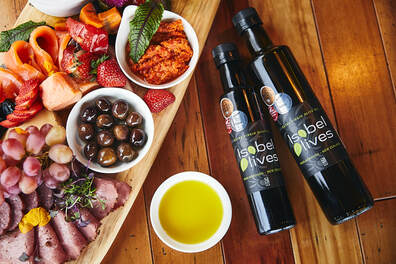
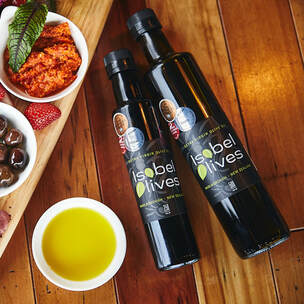
 RSS Feed
RSS Feed